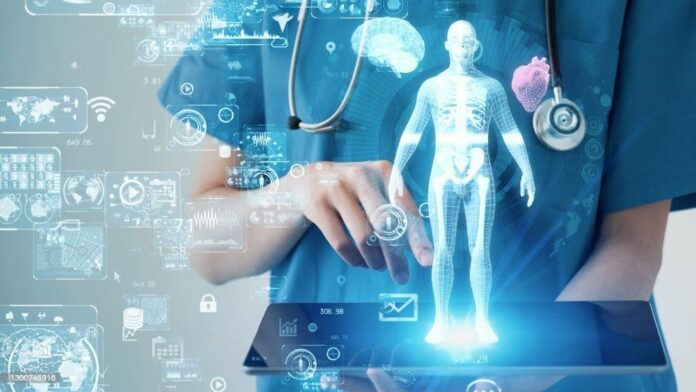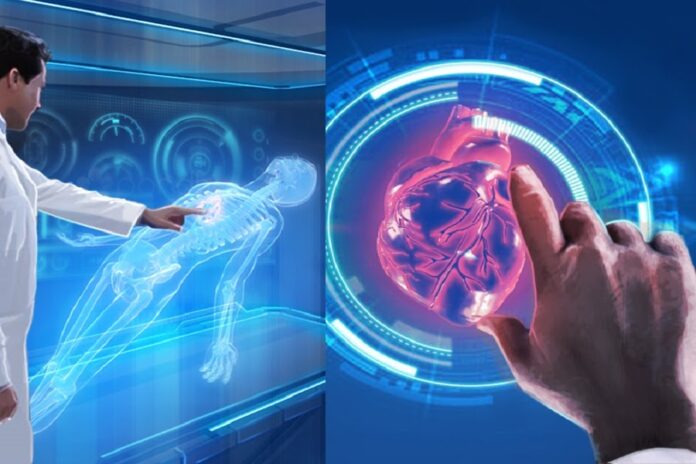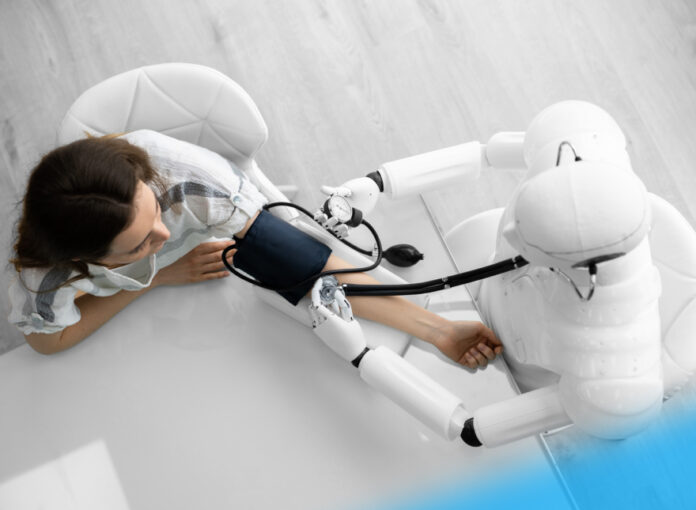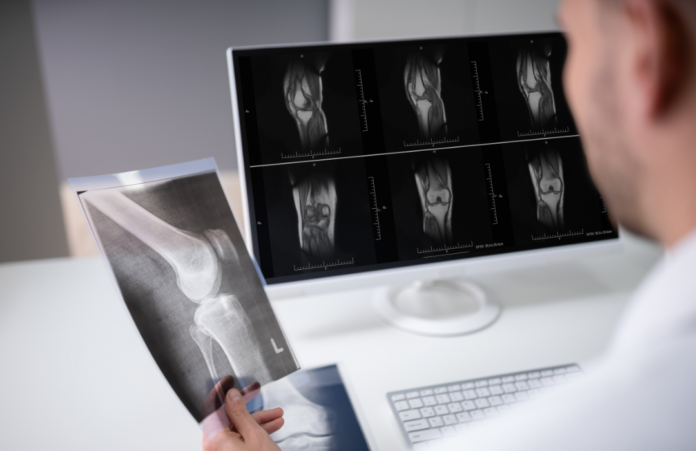Artificial Intelligence (AI) has the potential to transform healthcare management and delivery. With proper execution, AI can help improve patient outcomes, experiences, and provisioning of healthcare services. From making sense of disparate unstructured data to using generative AI to make clinical notes and better decisions, healthcare AI is progressive.
Where Moderna used AI for optimizing the COVID-19 vaccine, it can also reduce the drug discovery cost by up to $54 billion every year. With these and several other advantages, we are here to explore the most interesting AI use cases in healthcare.

Role of AI in Healthcare
The quantum and complexity of data is increasing progressively in the healthcare sector. From drug development companies like Moderna using AI to optimize their medicines to clinicians using AI for making notes, diagnosis, and treatment, AI is making the healthcare sector precise, productive, and efficient.
AI in healthcare is still in its infancy stage, with the future holding expectations about new processes and implications. Here’s how AI is helping improve solutions in healthcare;
- Decision makers in the healthcare industry and government are taking AI’s assistance to make better decisions. They are AI to decipher data at speed and with higher accuracy. AI helps connect the dots in unstructured data, which decision-makers can leverage to craft healthcare policies, deliver better healthcare solutions, and build better diagnostic systems.
- AI’s cost reduction benefits are delivered in several ways. One, clinicians are using AI solutions to automate EHR digitization. They can auto-record clinical notes with robotic process automation and convert these notes and conversations to clinical health records and information. Two, AI is being used in diagnosis, where Machine Learning models are used to analyze mammograms and quickly identify specific cancerous tumors. This reduces a patient’s consultation cost and increases diagnostic efficiency.
- AI-driven operational efficiency is visible in how it is transforming the healthcare workforce. Around 35% of the time healthcare workers spend can be automated with AI. It is going to change and augment the way healthcare workers execute their responsibilities, making them more efficient and productive.

7 AI Use Cases in Healthcare
The use cases of AI in healthcare are numerous. We have picked some of the most prominent and fast-growing applications of this advanced technology. Find out how AI is transforming the healthcare industry, its professionals and organizations complete each of the tasks with better efficiency.
1. Administrative Automation
Administrative tasks are time-consuming and often regarded as counterproductive. But with AI, tasks like scheduling appointments, processing claims, adding patient records, etc., can be automated.
This reduces the workload on administrative healthcare workers and improves their overall efficiency. AI-powered NLP solutions can further reduce the time required to formalize patient-healthcare workers communication.
IBM and Cleveland Clinic came together to use AI to help physicians take notes and analyze these papers to provide better and targeted treatment.
2. Virtual Nursing Assistants
AI-based nursing assistants can provide personalized health recommendations and care for patients without a human nurse.
These assistants can answer patient’s questions, send reminders about taking medicine, and continuously monitor patient’s symptoms. They can also send emergency alarms to the hospital and patient’s relatives.
Care Angel has a solution in the form of a Virtual Nurse, which is an engaging tool for the patients. It can screen patients, assess their health, and deliver personalized support.

3. Predictive Analytics
Another application of AI in healthcare is how it helps with analyzing patient data and making predictions about their health. Early disease diagnosis with accurate prediction can save a patient’s life and better disease management.
DeepMind and the US Department of Veteran Care are using a machine learning tool to predict Acute Kidney Injury (AKI) in veterans 48 hours in advance.
4. Medical Research
We have already discussed how AI is being used in cancer treatment by analyzing mammograms to detect cancerous tumors. With cancer threatening a patient’s life, early diagnosis is crucial to provide better care and treatment.
Oncora Medical is a platform tasked with collecting the medical data of patients. It evaluates the care provided and then optimizes the treatment through detailed data analysis and imaging.
Moreover, generative AI solutions are continuously used in drug development and conducting clinical trials. AI can help with the discovery process and improve the efficiency of clinical tests. Integrated with medical coding and guidelines, these solutions can help organize data into an understandable format.
5. Assistance with Diagnosis
AI tools we have today are highly effective in disease diagnosis and identifying conditions with precision. It can even help diagnose complex conditions by analyzing patient data, diagnostic reports, and imaging scans.
We have tools like Ezra that can analyze MRI scans to help doctors diagnose cancer.

6. Telemedicine
Another one of the AI in healthcare examples is telemedicine, which is reshaping the healthcare delivery system. Using the advances in telecommunication, AI is empowering doctors and healthcare professionals to deliver care in remote and inaccessible areas.
Communication happens through video conferencing, and machine learning algorithms are used to analyze patient data and medical records.
7. Robotic Surgery
AI advances have led surgeons to leverage robots and machine learning algorithms to improve surgical planning and execution. Surgical robots can complete complex procedures with higher speed and higher accuracy.
Moreover, we can expect robots to complete surgeries without the help of surgeons or humans supervising their work.
Conclusion
At the core of the applications of AI in healthcare is data and its correct analysis. Using this data and information provided by healthcare professionals, AI tools and technologies are able to deliver better healthcare solutions in terms of diagnosis, treatment, prediction, prescription, and imaging.

To enable healthcare organizations to get the most out of their data, Shaip provides healthcare AI solutions in the form of data collection, de-identification, and annotation. Get in touch with us to avail our healthcare AI services and further understand how we can help your organization deliver better care and services.





![Calgary’s Hottest Neighborhoods for Luxury Homebuyers [2024]](https://thewashingtonote.com/wp-content/uploads/2024/04/Calgary-324x160.png)



